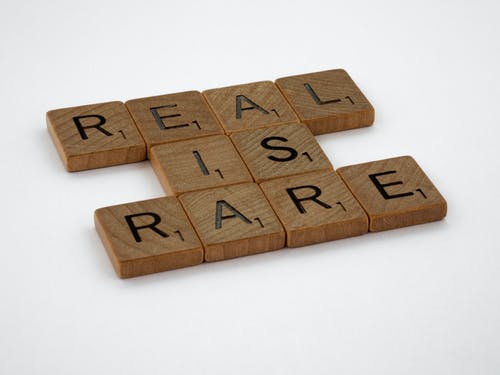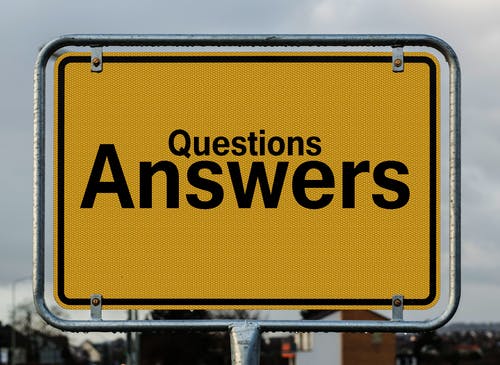When a wonderful friend last night suggested I write a blog on the topic “how to be a good friend to someone suffering with an eating disorder” there were three things that came to my mind immediately.
Three important things I instantly knew I’d be including when I sat down to write this post.
Well, to be accurate four things because firstly, I knew I wasn’t going to be using the word “suffering”.
It’s no longer a word I use when I talk about eating disorders because the reality is many of the people, I work with have lived with eating disorders for a considerable time (often 10-20 years or more). I myself lived with anorexia nervosa for 15 years and the reality is that within those years yes, there is an incomprehensible amount of suffering. My Gosh there is and there is no avoiding that fact but there are also wonderful things.
When you live with an eating disorder there is love, travel, study, learning, growth, work, family and friends.
There is also pain related to other experiences than the eating disorder. There is loss, grief and heartbreak.
There are also a bunch of mundane things, cleaning your teeth, paying taxes and going shopping.
Life with an eating disorder is just that, life with an eating disorder.
Not life as an eating disorder.
It’s easy to think it and it’s easy to feel it but the entire life of someone living with an eating disorder is not suffering with an eating disorder.
They are so much more than that.
And when you or someone you love is in recovery from an eating disorder this is what we want to increasingly focus on.
We want to focus on building your or their resources and life outside of the eating disorder because that, after all, is the whole point of doing recovery from an eating disorder!
The other three things that came to my mind immediately at the suggestion I write on this blog topic, you’ll have to read to the end to find out because I share these 3 last.
In all honestly, I believe the last three suggestions are those that will make the most difference to your being a good friend to the person you care about in recovery from an eating disorder.
They are also those that will make the most difference to your being a good friend to yourself.
They are also those that will make the most difference to your being a part of contributing to a kind and meaningful world where we can all be proud to belong.
They are a little harder to achieve because they are a little less straightforward on how to actually do them which is why I’ve decided to put them last.
To begin with I’d like to introduce two other important points that came to my mind as I thought a little deeper about the topic of being a good friend to someone in recovery from an eating disorderr.
Beginning with…
- Encourage Health

Encourage and support your friend in areas of life they enjoy outside of the eating disorder.
Always treat them as more than an eating disorder.
For certain don’t ignore that they have an eating disorder, dismiss it or downplay the significance and toughness of that but at the same time know that they are so much more than the eating disorder and help them to focus on and build those parts of their life.
Don’t push them, guilt them, tell them they must do this or that and please don’t believe that the more they do the eating disorder will naturally disappear or that this is all they must do recover but simply support them in the healthy things they choose to do.
2. Hold Compassion

Earlier on the same day that my friend suggested I write this blog (yesterday) he had watched a little of an online clinical hypnotherapy training course I was doing that afternoon on hypno-oncology. He’s a doctor and talked about how he’d read a book on cancer patients, and it touched on how they spoke about just wanting to be treated “normally”.
About how their friends, family, doctors etc end up treating them differently, not through maliciousness or even intentionally but simply because they don’t know how to treat them.
And it’s understandable. It’s an uncomfortable situation to be in.
For everyone.
We don’t get taught how to handle and respond such tough situations.
There is no class on how to treat people we love and care about when they are evidently suffering.
How are we supposed to act?
How are we supposed to behave around and towards this person we adore they are clearly faced with the very real threat of death?
We have to make it up.
Which means we don’t always get it right.
Therefore, to me when I use the word compassion I mean holding in your heart the best version of who they can be and treating them as such.
Compassion is more than the sympathy of “I’m sorry you’re in pain” or even the empathy of feeling their pain because you don’t have to feel their pain or even understand their pain in order to know that they are in pain.
You don’t have to feel their pain or even understand their pain because you can take their experience at their word.
You don’t have to feel their pain or even understand their pain to take it into account with how you treat them while at the same time continuing to treat them as a human being and definitely not as someone who is permanently broken.
3. Do Your Own Work

These last two points are where we are getting into real territory.
These are the first two things which came to my mind when my friend helpfully suggested I write a blog post on this topic.
This one more than any of the others will change not just the relationship you have with your friend as they go through their recovery from an eating disorder but also has the potential to change many other people’s lives and legitimately contribute to changing the world.
I am more than anything else passionate about this one.
The very best thing you can do for your friend, anyone else you care about, yourself and the world is to do your own work.
Any areas of self-development you identify you may need to improve.
Do it.
If you think you have none.
Still, do it.
Otherwise, you’re unknowingly and unintentionally going around supporting and reinforcing diet culture, poor body image and poor boundaries or whatever else it may be.
If you are wondering what I am talking about here by “doing the work” and if there are areas of your own life you could benefit from taking a look at some suggestions of areas to think about and take action on include getting clear on your values and seeing if your daily actions align with your values (for example asking yourself the question what is most important to me? Is that I am saying is most important to me reflected in my day to day life?), updating your beliefs (For example do you believe bodies should look a certain way? That there are some shapes and sizes that are better than others? That life should be hard or that some people are unable to recover from eating disorders?), boundaries (For example do you find it hard to say no to people?), self-image (For example do you put yourself down based on how you look? Do you compare yourself to others?), your relationship with food (For example do you think of foods as good or bad? Do you beat yourself up for what you eat or don’t eat?) and exercise (For example do you feel happy to skip workouts? Do you feel happy to listen to your body’s needs?)
These are all just suggested areas to get you thinking and there’s plenty more.
Consider how you may unintentionally be contributing to the problem.
Because people don’t learn that it’s ok to eat or live in a body of any size or shape by being told that it’s ok to eat or that it’s ok to live in a body of any size or shape.
They learn that it’s ok through seeing and experiencing that it is ok.
Be one of the ones that shows, rather than tells, it’s ok.
And if you’re not sure how to do this or as you read through this you realise maybe you do have your own work to do I highly encourage you to seek outside assistance because identifying, let alone changing for example some of our deeply ingrained thought patterns or beliefs can be near impossible without outside assistance.
4. Be Genuine

When you’ve done your own work and while you’re doing your own work your genuineness and honestly will inspire your friend more than anything you could ever try to do or any way you could ever try to help them.
I also want you to know you can take the pressure off yourself. You really don’t have to be an expert or know everything about eating disorders in order to be a good friend to your friend in recovery from an eating disorder.
Honestly, their recovery is not up to you.
Your most important, most useful role is to do your own work and simply be genuine and authentic in your friendship.
This is why the above point (do your own work) is so important because if you being genuine involves body shaming, even if this isn’t directed towards your friend in recovery but towards celebrities or complete strangers or even yourself, if you participate in diet culture talk as fact or as though it is normal or any number of these things which are unfortunately so common it’s harmful.
Educate yourself, do your own work to break out of all this bs and then simply be genuine because when you’re doing your own work there is no longer a need to hind behind knowledge, strategies or perfection.
5. Ask

If after reading this you find yourself still feeling lost with how to be of any help and what to do, simply ask.
By all means educate yourself but at the same time don’t assume their experience is the same as anything you read elsewhere or that you are an expert or know what’s best for them. Even if you are an “expert” in the field of eating disorder treatment you are not an expert on them.
But they are.
So, instead of guessing just ask.
Always ask.
You’ve probably heard that eating disorders thrive in silence and secrecy and I can tell you from 15 years on the ground living the daily battle that is life with anorexia nervosa and several more years working with peopel it recovery from eating disorders it is true.
Let them know it’s ok to speak about it and that it’s ok for them to ask for what they need.
Be a part of removing the unnecessary shame and stigma.
You may find your friend has a couple of clear suggestions, and you may find they don’t know or are too embarrassed or ashamed to share what they feel could truly be of help to them.
Either way your asking the question shows more than any tips you could ever read or strategy you could ever employ that you care.
The Real Important Take Home Bits

At the end of the day the 5 suggestions I’ve included within this blog on “How to be a Good Friend to Someone in Recovery from an Eating Disorder” are just that suggestions.
I thought of them because I can in hindsight see that they would have helped me during my recovery.
During my recovery there are other things I’d have said would have helped such as refraining from commenting on my body (even to say I looked beautiful or healthy) or what I was eating (even to say it was good) because all this stuff was very confusing. It may have been said with good intentions but all it did was reinforce the pressure to have a body that looks a particular way or the belief that there are good and therefore by definition bad ways of eating.
But to run off a list of “do’s and don’ts” would be exhausting and also it would be impossible to cover all bases.
Which is why I haven’t attempted to do that.
These 5 suggestions do away with the need to try to get it right.
They do away with the tiptoeing around in the belief that there is a right and wrong.
I’ve chosen to share these 5 examples not because they are a comprehensive list or an exact science but for the reason that they open up space for genuineness and realness.
The value of which cannot be underestimated in eating disorder recovery.
Your knowing them and your using them doesn’t always mean they will be recieved with joy or that they will “cure” your friend in any way.
Please know that they are on their own path and ultimately only they are responsible for their recovery.
You can’t do it for them. As much as you may want to!
Finally, and above all please know that it is truly beautiful that you are investing your time and energy into reading this.
That alone shows the immense care you have for your friend in recovery from an eating disorder.
It is beautiful that you are looking for ways you can actively make it easier for them or support them.
The best thing you can ever do is this, genuinely care.
Genuine care always shines through.
With my whole heart I hope you found this information useful and inspiring.

Become Great. Live Great.
Bonnie.



